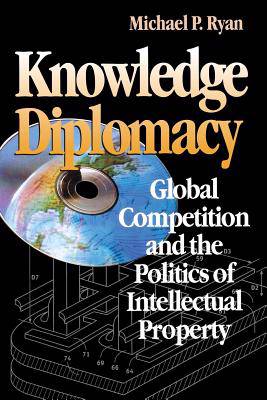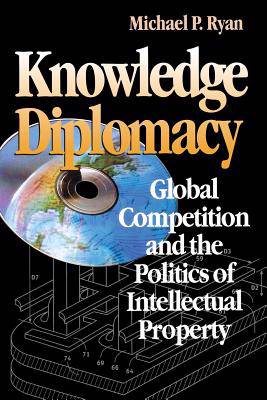
- Retrait gratuit dans votre magasin Club
- 7.000.000 titres dans notre catalogue
- Payer en toute sécurité
- Toujours un magasin près de chez vous
- Retrait gratuit dans votre magasin Club
- 7.000.0000 titres dans notre catalogue
- Payer en toute sécurité
- Toujours un magasin près de chez vous
Knowledge Diplomacy
Global Competition and the Politics of Intellectual Property
Michael P RyanDescription
With the pervasiveness of the information revolution, the preservation of intellectual property rights through patents, copyrights, and trademarks has become far more difficult. Knock-off imitations abound and outright piracy of everything from pharmaceuticals to films to music videos is rife, especially in the vibrant markets of developing countries. Enforcement of existing international laws is often weak and countries are at odds over what should be enforced. And beneath this conflict is one more profound: where is the border between the rights of authors, singers, and innovative manufacturers to profit from the fruits of their intellectual efforts and the rights of libraries and other institutions, as well as individuals, to have access to information? In this book, Michael Ryan explains the issues, politics, and diplomacy of balancing intellectual property rights with the public's right of access. He discusses the major negotiations to forge international policy in the 1980s and 1990s, including the bilateral U.S. intellectual property negotiations with China and other developing countries, the multilateral negotiations conducted at GATT, and the 1996 copyright treaties negotiated at the World Intellectual Property Organization. He analyzes the shaping context of global competition in intellectual property-intensive industries---pharmaceuticals and fine chemicals, film and music, publishing, information technology, and software---and the industries' policy advocacy tactics and strategies to protect their markets. He examines the role of the World Intellectual Property Organization and explores the new ""knowledge diplomacy"" that will establish the rules governing the exploitation of innovation and expression in a digital, twenty-first century global economy.
"Spécifications
Parties prenantes
- Auteur(s) :
- Editeur:
Contenu
- Nombre de pages :
- 249
- Langue:
- Anglais
Caractéristiques
- EAN:
- 9780815776543
- Date de parution :
- 01-04-98
- Format:
- Livre relié
- Format numérique:
- Genaaid
- Dimensions :
- 161 mm x 236 mm
- Poids :
- 539 g

Les avis
Nous publions uniquement les avis qui respectent les conditions requises. Consultez nos conditions pour les avis.






